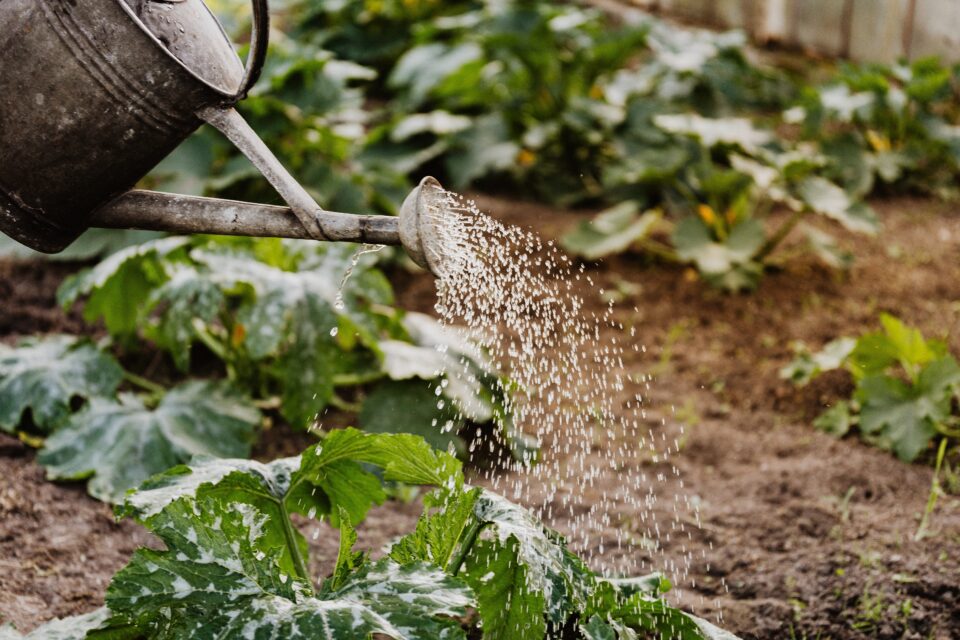If you want to embrace a healthier lifestyle that includes a nutritious diet, organic gardening is the way to go. It does require some effort, in order to grow, though. This probably has you wondering where to start your own garden.
Try not to walk in your garden unless you absolutely have to in order to care for it. Work from a distance when you can. Walking across the soil compacts it, which makes it harder for roots to penetrate to needed nutrients. If your soil is already packed down, gently aerate it without damaging root structure.
To keep air flowing through your compost pile, stand a large PVC pipe with punched holes in the center of your pile so the air flows up and down the pipe, and then through the holes directly into the pile. The air movement helps your soil decomposers create the heat needed to jumpstart the decay process.
A great way to assure a successful organic garden year after year is to keep a gardening journal. You simply need to jot down what vegetables do well and those that don’t, as well as certain pests or other issues that your garden runs into. By doing this, you’ll know what to change or keep the same the following year, resulting in a gorgeous organic garden.
When trying to add compost to your organic garden, find a better way to get the compost there. It can be a pain to have to move wheel-barrows of compost to your garden. You could try layering newspaper down the walkways of your garden, and adding straw to the top. Near the end of the season, the compost will be ready to be added to your garden and you only have to move it from the walkway to the beds on each side.
Carefully consider the location you choose to plant trees. Remember that your trees will likely get huge. Make sure trees are not planted too close to any structure or foundation. The costs involved, to remove a tree and roots that have gotten into your structures, can be astronomical. This will be easy to avoid with proper planning.
One odd but apparently useful tip for growing organic plants, is to lightly brush your plants with your fingers or a piece of cardboard 1-2 times a day. This will make your plants grow faster and they will get bigger than they would have without this practice.
Regulate the amount and timing of watering, to the specific climate and its seasonal variations. The amount of water needed will change based on time of the day, the content of your municipal water and what your soil make-up is. If the climate is hot, but humid you’ll have to avoid watering the leaves, for example. Make sure you give the roots plenty of water.
Many horse farms will give you their horse manure for free if you ask. Some will even transport it to your door for a small fee. Horse manure is rich in vitamins and minerals that plants crave. Usually, the manure is blended with wood shavings to reduce the smell. For the serious organic, make sure that the shavings used are also organic.
When you first begin using organic produce you will realize that it tends to rot quite a bit faster. This is because less preservatives are used. Having a lower shelf life means that you need to cook or eat the produce a little bit faster than you would normal store bought options.
When planting your tomato seedlings in your organic garden, you should plant them up to the first true leaves, which will bury the stem. The reason is because new roots will sprout on these buried stems. The more roots there are in a seedling, the more fruit it will produce.
Grow basil successfully. Basil is an annual warm-season herb, very susceptible to cold and frost. Sow seed in spring at a depth of about 1/2 inch in full sun. Keep the soil evenly moist. When the basil reaches about 6 inches, pinch out the top to encourage bushy growth. Pick continuously before any flower buds open. Pick leaves in the morning after dew has dried, and don’t over wash leaves, as you will lose the aromatic oils.
When harvesting tomatoes from your organic garden, you do want to pick ripe tomatoes; however, you do not want your tomatoes to be too ripe. Certain tomatoes that are too ripe might be mealy. You should aim to harvest tomatoes when they have their full color and are at their largest size.
Spread around your dead fish refuse in the garden. Innards and intestines can decompose and leave vital nutrition in the soil. You may use either a composting pile or simply leave the refuse around your garden’s soil. Either way, eventually nature returns all of the plant’s nutrients back to the soil.
Keep your fertilizers and pesticides organic. It may seem like an odd fact, but residential gardeners use a ton more chemicals than actual farmers do. This causes big problems for vegetation, fish, and wildlife. Urban areas are polluted enough without the chemical dumping. Do your part and avoid chemicals at all costs.
In conclusion, creating and maintaining an organic garden requires hard work, effort and research. It is also true that in order to see results, that you have to keep at it. With the advice from this article, you are now ready to begin a successful organic gardening adventure.
